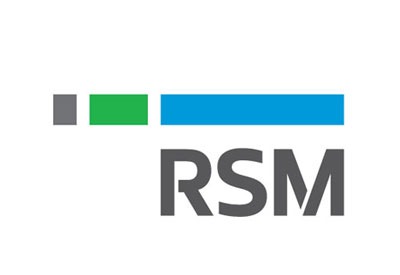
Before you know it, the end of financial year will be here. Is your business ready? Tax is always something to consider as it is a large cost to most businesses. Looking at your business and personal situation in advance of the year end can provide tax planning opportunities. It may be that there is an opportunity to obtain additional tax deductions, defer income, ensure profits are distributed in a tax effective way, or even to restructure your business group.
Some of the things you may like to consider in order to make sure your business is in the best position possible, include:
- Superannuation – In order to claim a deduction for super contributions you owe to an employee’s super fund, make sure you pay the super before the due date for each quarter’s payment. You may also like to make sure any super related to the 30 June 2017 quarter is paid before the end of the financial year in order to obtain the deduction this year.
- Personal superannuation – Like employee super, ensure you pay any personal super contributions you can make prior to 30 June to get a deduction this year. Note that the limit on the total concessional contributions that may be made is $35,000 for those aged 49 years and over and $30,000 for others. From 1 July 2017, this cap will be only $25,000 for everyone regardless of their age. So if you can, you may like to make the most of the chance to top up your superannuation before this changes.
- Bad debts – Undertake an assessment of the receivables/ debtors in your business. Where there are amounts that are not collectible and therefore have gone bad, write them off prior to 30 June to be eligible for a tax deduction for these amounts. Just remember to also make the GST adjustment for these amounts.
- Stocktake – Do a 30 June 2017 stocktake to determine the correct value of your closing inventory. Use this to find any obsolete or damaged stock that you are carrying. You can choose to value the stock at the lower of cost, replacement, or market sale price. This means that stock that is obsolete or damaged can be written off or reduced in value for tax purposes and claimed as a deduction.
- Shareholder loans – Where you have borrowed money from a company you own (or an associate owns) it is important that you consider any impact this may have on your tax position for the year. Where these loans are not treated carefully you may end up with a deemed dividend and some unexpected tax.
- Trust distributions – If you operate a trust, make sure the trustee decides how the profit will be distributed prior to 30 June and that the trustee documents this decision with an effective trust resolution. This decision is important as it tells the beneficiaries who is presently entitled to the trust income for the 30 June 2017 year. If no beneficiary (including a default beneficiary) is made presently entitled to trust income as at 30 June, the trustee will be assessed on the trust’s taxable income at the highest marginal tax rate plus the Medicare levy. In effect 49% tax may be paid on all of the trust income. In some cases this is much higher than an individual that was made presently entitled would pay.
- Small business concessions – If you are carrying on a business that meets the definition of a “small business” you may be entitled to certain tax concessions. It is important that you undertake an assessment of whether you qualify for these as they can provide significant advantage to your tax position. These concessions may include:
- $20,000 instant asset write off – For assets that cost less than $20,000, an immediate tax deduction may be taken for the cost of the asset in the year the asset is installed and ready for use. However, the asset needs to be purchased by 30 June 2017 to get the full $20,000. Effective 1 July 2017 the instant asset write off reduces back down to $1,000 per asset.
- Immediate deduction for business start-up costs Where you have incurred professional fees, legal and accounting advice expenses for starting up a business, you may be entitled to an immediate deduction for these expenses.
- Business restructure – From 1 July 2016, small businesses can change the legal structure of their business without incurring any income tax liability when active assets are transferred by one entity to another. If you believe you have outgrown your structure, it may be time to consider whether you can change it without incurring a tax liability
- Company tax rate – In the 2017 year the tax rate for a company that is considered a small business, has a tax rate of 28.5% rather than the 30% that applies to other companies.
- Prepayments – You may be entitled to an immediate deduction at 30 June 2017 for prepayments that are for a period of 12 months or less where the period ends before the end of the next income year. If you are not a small business entity these expenses would be apportioned over the period to which the expense relates. This may offer significant immediate advantage.
So before 30 June 2017 rolls around, make sure you spend some time with your accountant/tax agent to ensure you are effectively planning your position.
Speak to RSM business and taxation advisor, Sally Colquhoun,
should you wish to explore any of these strategies for your business on
[email protected] or call 02 6217 0323.
For more information, please contact Sally Colquhoun on [email protected] or 02 6217 0323

